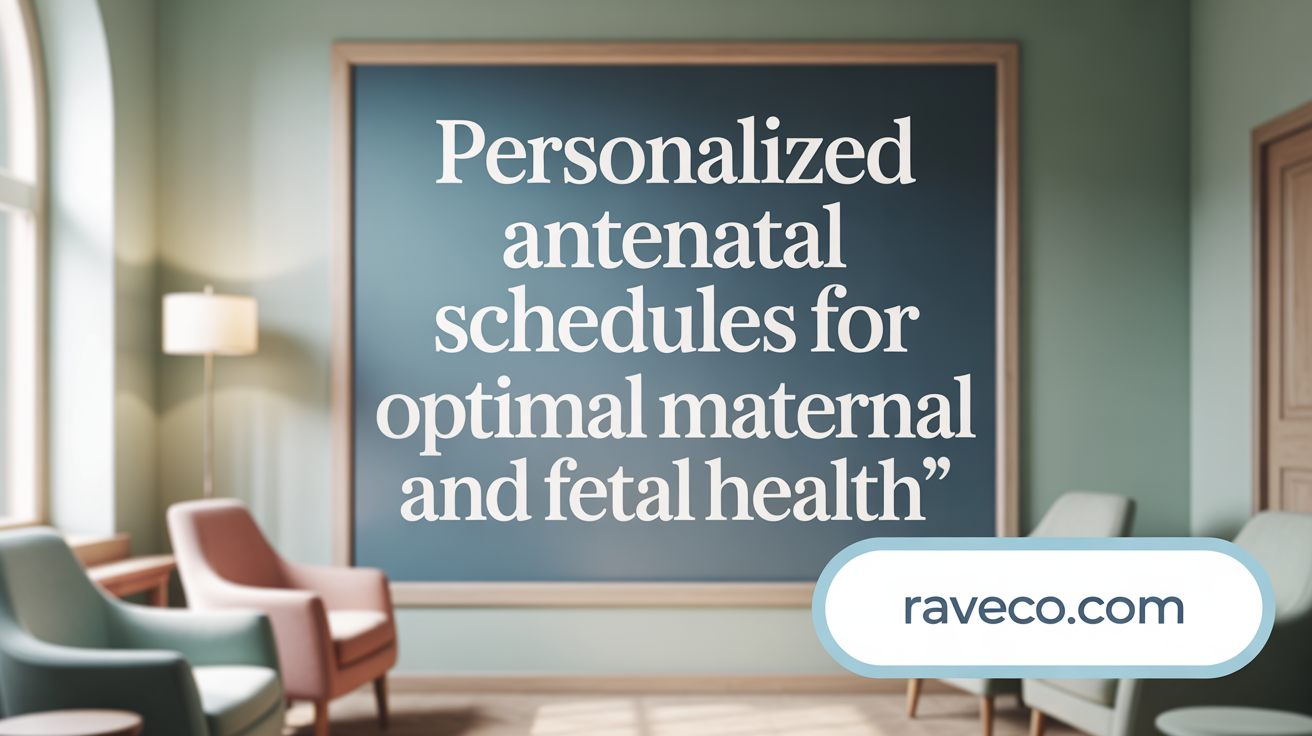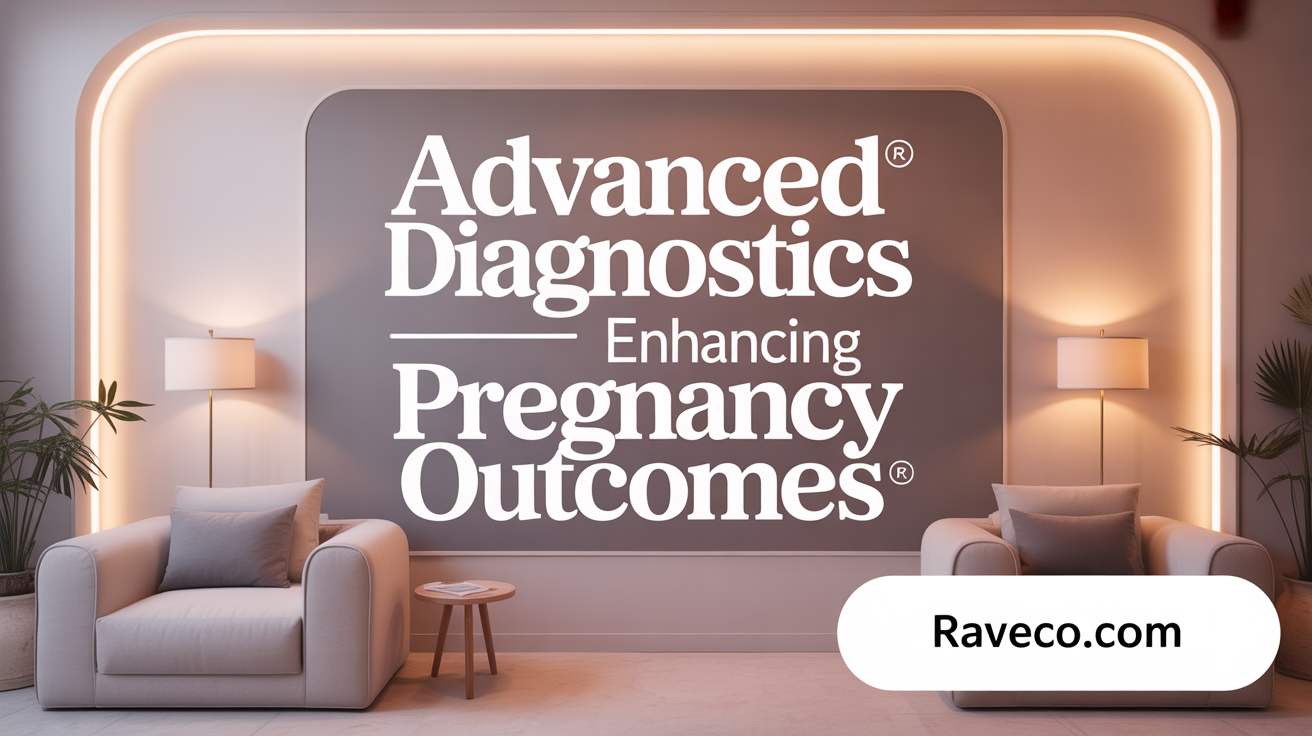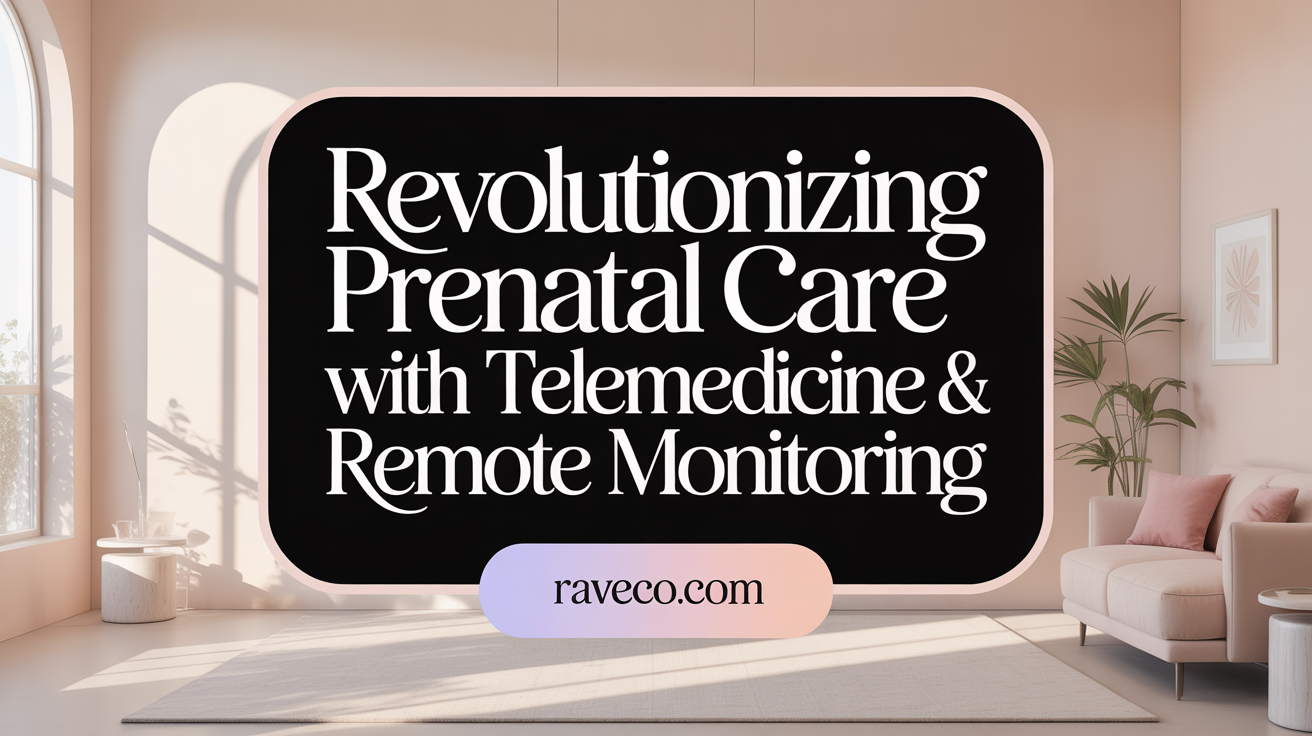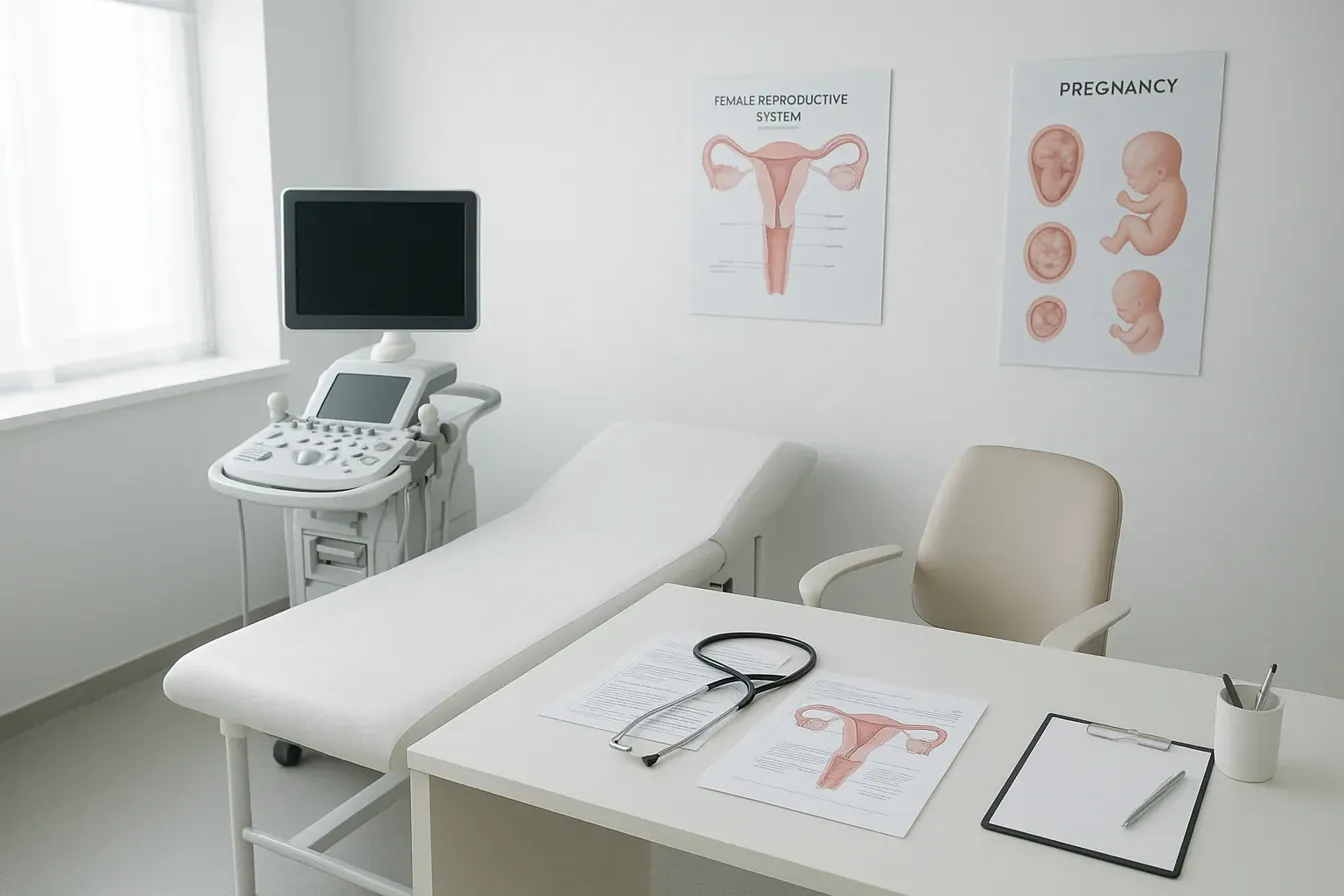Navigating Your Birth Control Choices: Tailoring Options to Fit Your Unique Lifestyle

Embracing Pregnancy as a Unique Journey Beyond Routine Care
Prenatal care has traditionally been viewed as a series of routine visits aimed at monitoring the health of a pregnant woman and her unborn child. However, evolving evidence, shifting healthcare policies, and a deeper understanding of pregnancy’s complex nature have driven a transformative shift in how care is delivered. Today’s pregnancy care goes beyond standard checkups by embracing comprehensive, personalized, and innovative strategies that cater to both medical and psychosocial needs. This article explores what differentiates contemporary pregnancy care from routine health visits, highlighting the philosophies, specialized interventions, technology enhancements, support systems, and educational guidelines that collectively foster healthier, more positive pregnancy experiences.
Structured Schedules and Tailored Milestones in Antenatal Care
 A well-organized antenatal appointment schedule is vital for monitoring pregnancy progress and ensuring the health of both mother and baby. Typically, pregnancy care begins with an initial visit between 6 and 12 weeks of gestation. This comprehensive checkup includes reviewing medical history, measuring vital signs, conducting physical exams, and performing blood and urine tests to screen for infections and blood disorders. An ultrasound at this stage helps estimate the due date and assess early fetal development.
A well-organized antenatal appointment schedule is vital for monitoring pregnancy progress and ensuring the health of both mother and baby. Typically, pregnancy care begins with an initial visit between 6 and 12 weeks of gestation. This comprehensive checkup includes reviewing medical history, measuring vital signs, conducting physical exams, and performing blood and urine tests to screen for infections and blood disorders. An ultrasound at this stage helps estimate the due date and assess early fetal development.
During the second trimester, from approximately 13 to 26 weeks, women usually have routine visits every four weeks. These visits include measuring fetal growth, monitoring maternal health, and addressing any concerns. Around the 20-week mark, a detailed ultrasound—often called an anatomy scan—is performed to evaluate fetal structures and determine gender if desired. Blood tests for infections like toxoplasmosis, and screenings for anemia and gestational diabetes, are also conducted.
In the third trimester, starting from 27 weeks, appointments become more frequent, scheduled every two to three weeks, and then weekly after 36 weeks. These visits focus on ongoing fetal monitoring, checking fetal position, heart rate, and screening for infections such as Group B streptococcus (usually between 35-37 weeks). Discussions about labor and birth plans are also common during this period. Care providers assess cervical readiness and may perform pelvic exams as needed.
Post-delivery, a postpartum visit, typically around six weeks after birth, helps evaluate physical recovery, emotional well-being, and family planning needs. Regular postpartum checkups are crucial for addressing mental health issues like postpartum depression and ensuring sustained maternal health.
The adoption of these milestone-based appointments facilitates early detection of potential complications like preeclampsia, gestational diabetes, or fetal growth restrictions. Tailoring visit frequency and content to each pregnancy’s risk profile ensures personalized and effective care.
| Appointment Stage | When It Occurs | Main Focus | Additional Notes |
|---|---|---|---|
| Initial consultation | 6-12 weeks | Medical history, physical exam, early tests | Ultrasound to confirm pregnancy and due date |
| Early second trimester | 13-20 weeks | Fetal growth, anatomy scan | Blood tests, screening for infections |
| Mid-second trimester | 20-26 weeks | Routine check, fetal heartbeat, movement | Optional genetic screening |
| Late second trimester | 26-36 weeks | Monitoring fetal position, early assessments | Planning for delivery |
| Early third trimester | 27-36 weeks | Frequency increases, fetal monitoring | Blood tests for Group B streptococcus |
| Final month | 37-40 weeks | Weekly visits, final fetal assessments | Preparing for labor |
| Postpartum follow-up | 6 weeks after birth | Physical recovery, mental health | Family planning, lactation support |
Understanding and adhering to this schedule helps safeguard maternal and fetal health, ensuring timely intervention when necessary. Regular, milestone-driven care supports a healthier pregnancy experience and reduces risks of complications.
How Pregnancy Care Stands Apart From Routine Health Visits
How does pregnancy care differ from routine health visits?
Pregnancy care, also known as prenatal care, is specifically designed to monitor and support the health of both mother and developing baby. Unlike general health visits that focus on overall wellness, chronic disease control, and preventive screenings for the broader population, prenatal care involves targeted assessments tailored to pregnancy progress.
During pregnancy, healthcare providers perform specialized tests and monitoring procedures such as ultrasounds to visualize fetal development, genetic screenings, and blood tests to detect issues like anemia or infections. There are also routine practices like fetal heartbeat checks, fundal height measurements, and assessments of fetal movements.
The visit schedule for pregnant women is more frequent, especially as they approach delivery, with appointments often scheduled every four weeks early on, then weekly in the third trimester. These visits include vaccinations like Tdap, screenings for gestational diabetes, and Group B Streptococcus infections, which are not typically part of routine health checks.
In contrast, routine health visits for non-pregnant adults mostly focus on managing existing conditions, health maintenance, and preventive care without the pregnancy-specific screenings or fetal assessments. The goal of prenatal care is early detection of potential complications such as preeclampsia or fetal growth restrictions, which can significantly impact pregnancy outcomes.
Overall, pregnancy care is more comprehensive, involving ongoing, pregnancy-specific assessments, and aimed at ensuring a healthy pregnancy for both mother and baby. This specialized approach helps reduce complications and supports early intervention, ultimately promoting better health outcomes for both mother and child.
Table: Differences Between Pregnancy and Routine Health Care
| Aspect | Pregnancy Care | Routine Adult Care | Description |
|---|---|---|---|
| Focus | Mother and fetal health, pregnancy-specific risks | General health, chronic conditions, preventive care | Tailored to pregnancy needs, including fetal development monitoring |
| Frequency of Visits | Every 4 weeks initially, increasing to weekly near delivery | Typically annually or as needed | More frequent, especially in later pregnancy stages |
| Specialized Tests | Ultrasound, genetic screening, gestational diabetes testing | Blood pressure, cholesterol, diabetes screening | Includes tests specific to pregnancy like Group B Strep, ultrasounds |
| Vaccinations | Tdap, possibly influenza if applicable | General adult immunizations | Focused on protecting mother and fetus during pregnancy |
| Monitoring | Fetal heart rate, fetal movements, maternal physical exam | Overall health assessment | Emphasizes fetal well-being and early detection of pregnancy issues |
| Management of Risks | Preeclampsia, fetal growth restriction, infections | Chronic disease management | High priority on pregnancy-related risks |
| Behavior and Lifestyle Advice | Nutrition, physical activity, avoidance of harmful substances | General health promotion | Pregnancy-specific guidance to promote healthy fetal development |
This distinction underscores that pregnancy care is a specialized and comprehensive approach, crucial for a healthy gestation and the well-being of both mother and child.
World Health Organization Guidelines: Raising the Standard of Antenatal Care

What general guidelines does the World Health Organization recommend for antenatal care visits?
The World Health Organization (WHO) has introduced new standards to enhance antenatal care (ANC) globally. Central to these is increasing the number of recommended contacts from four to eight throughout pregnancy. The purpose of this change is to allow for closer monitoring and early detection of potential complications, ultimately improving health outcomes for mothers and babies.
These enhanced visits are scheduled at specific stages during pregnancy, including early assessments in the first trimester and regular check-ins around mid-pregnancy and later stages. Each contact focuses on comprehensive assessments, such as blood pressure checks, fetal growth measurements, screening for infections like HIV and malaria, and nutritional counseling. The guidelines also underscore the importance of health education, emotional support, and preparation for delivery and postpartum care.
Beyond routine checks, WHO emphasizes the importance of individualized care tailored to each woman’s health status, environment, and social circumstances. This holistic approach ensures that care is not only preventive but also responsive to specific needs, including addressing issues like intimate partner violence.
Implementing these recommendations aims to reduce the risk of both maternal and neonatal morbidity and mortality. Increased contact frequency allows healthcare providers to act swiftly if issues are detected, contributing to healthier pregnancies and safer deliveries.
Overall, the WHO's insistence on quality, comprehensive, and personalized antenatal care forms a cornerstone of efforts to improve maternal and child health worldwide. The updated guidelines reflect the latest evidence and commitment to reducing disparities and promoting well-being from pregnancy through postpartum.
For more detailed information, search "WHO antenatal care guidelines 2023".
Essential Components at Every Prenatal Visit
What essential information is important to include at every prenatal visit?
Every prenatal appointment serves as a cornerstone for ensuring the health and well-being of both mother and baby. It is essential to start each visit with a thorough review of the patient's medical history, including any pre-existing conditions, previous pregnancies, and current medications. This helps in customizing care and identifying potential risks early.
Monitoring vital signs is also crucial. Healthcare providers typically check blood pressure to watch for signs of preeclampsia or hypertension, measure weight gain in line with pregnancy stage, and listen to the fetal heart rate to assess fetal well-being. Regular checks help catch issues before they become serious.
Lab tests and screenings form an integral part of routine prenatal care. These include urine tests to detect infections or proteinuria, blood tests for anemia or infections like HIV, and ultrasounds to assess fetal growth and development. During certain stages, additional screenings, such as genetic testing or infectious disease assessments, are recommended.
Discussions around lifestyle and education are equally important. Providers guide expectant mothers on nutrition, the importance of vaccinations like tetanus, physical activity, and avoiding harmful substances like alcohol and tobacco. They also prepare women for labor and delivery by discussing birth plans and answering questions.
Mental health assessment should never be overlooked. Monitoring emotional well-being helps identify stress, depression, or anxiety, which can impact pregnancy outcomes. Ongoing support and prompt intervention can improve maternal mental health.
In summary, each visit is an opportunity to evaluate physical health, provide education, support mental wellness, and address individual concerns, all aimed at fostering a smooth pregnancy journey.
Philosophies and Practices Underpinning Comprehensive Pregnancy Care
What practices and philosophies underpin comprehensive pregnancy care beyond routine checkups?
Comprehensive pregnancy care is rooted in a holistic, person-centered approach that views pregnancy as a natural and transformative life experience. This philosophy emphasizes that physical health, emotional well-being, and social support are interconnected, and all should be nurtured to ensure positive outcomes for both mother and baby.
A key element of this approach is recognizing the importance of emotional health. Addressing stress, anxiety, and mental health issues is integrated into routine care, with emphasis on creating a supportive environment where women feel safe and empowered.
In addition to standard medical assessments, complementary and traditional therapies are incorporated. Practices like yoga, acupuncture, massage, and nutritional counseling are often recommended to support overall wellness. These therapies help alleviate common physiological symptoms and promote relaxation and mental resilience.
Empowerment through education is a fundamental principle. Women are encouraged to participate in shared decision-making, learn about their pregnancy, and make informed choices. This includes understanding nutrition, physical activity, and self-monitoring techniques such as blood pressure and fetal movement tracking.
The role of midwifery and natural birth support underscores this philosophy. Midwives focus on supporting normal, low-intervention births while providing comprehensive education and emotional support, fostering trust and open communication. Their approach often includes emphasizing natural physiologic labor and minimizing unnecessary medical interventions.
Addressing social determinants of health is also a priority. This includes screening for issues like intimate partner violence and ensuring equitable access to care and resources, which contribute significantly to healthier pregnancy experiences.
Altogether, this philosophy aims to nurture both the physical and emotional aspects of pregnancy, helping women view pregnancy and childbirth as natural processes that can be supported and celebrated. It promotes confidence, self-awareness, and a sense of agency, ultimately leading to healthier mothers and infants.
For more insights into this caring philosophy, search for "holistic and comprehensive pregnancy care philosophy."
Specialized Tests and Assessments Elevating Prenatal Care

How do specialized tests and assessments differentiate pregnancy care from standard protocols?
Traditional prenatal care involves routine screenings and checkups to monitor the mother's and fetus's health. However, incorporating specialized tests and assessments takes pregnancy care to a more detailed and personalized level.
One of the main advances is genetic and chromosomal screenings. Tests like cell-free fetal DNA (cfDNA) analysis tap into the maternal blood to detect chromosomal abnormalities such as Down syndrome with high accuracy. Carrier screening helps identify genetic risks in parents that might affect the fetus. In more diagnostic procedures, chorionic villus sampling (CVS) and amniocentesis can confirm genetic conditions early in pregnancy.
Advanced ultrasound technologies also enhance fetal evaluation. 3D and 4D ultrasound imaging provide detailed views of fetal anatomy, helping detect structural anomalies earlier and more accurately than standard two-dimensional scans.
Biochemical marker assessments are another critical aspect. Blood tests measuring specific proteins and hormones can estimate the risk for conditions like preeclampsia, neural tube defects, and gestational diabetes. These markers enable healthcare providers to implement preventive or early interventions.
Early detection of pregnancy complications becomes more feasible with these assessments. Regular monitoring through non-invasive tests and targeted ultrasounds can identify issues before symptoms appear, allowing timely care adjustments.
Personalized testing plans are devised based on individual risk factors, health history, and previous pregnancies. This tailored approach ensures that each woman receives the most appropriate and informative evaluations.
In essence, specialized assessments expand upon standard protocols by providing comprehensive insights into fetal and maternal health. They facilitate early, precise detection of risks and support customized management strategies, ultimately improving pregnancy outcomes and maternal well-being.
| Type of Test | Purpose | Technology/Method | Additional Notes |
|---|---|---|---|
| Cell-free fetal DNA testing (cfDNA) | Detect chromosomal abnormalities | Blood sample analysis | Non-invasive, high accuracy |
| Carrier screening | Identify genetic risks | Blood tests, family history | Targets specific inherited conditions |
| Chorionic villus sampling (CVS) | Confirm genetic issues | Placental tissue sampling | Invasive, performed early in pregnancy |
| Amniocentesis | Confirm chromosomal/genetic conditions | Amniotic fluid sampling | Usually performed in second trimester |
| 3D/4D Ultrasound | Structural fetal assessment | Ultrasonography | Visualize fetal anatomy in detail |
| Biochemical markers | Risk assessment for complications | Blood tests for proteins, hormones | Includes PAPP-A, AFP, hCG |
| Glucose tolerance tests | Detect gestational diabetes | Blood sugar measurement | Usually between 24-28 weeks |
This comprehensive approach enables healthcare providers to deliver more precise, proactive, and personalized care, promoting healthier pregnancies and better outcomes for mothers and babies.
Innovations in Pregnancy Management: Telemedicine and Remote Monitoring

What innovative and alternative strategies are emerging in pregnancy management?
Recent developments in prenatal care are transforming how healthcare providers support pregnant women. Digital health technologies, especially telemedicine and remote monitoring devices, play a vital role in this shift.
One key innovation is the use of real-time video consultations. These virtual visits allow pregnant women to connect with obstetricians, midwives, and other specialists from home, reducing the need for frequent in-person appointments. This approach not only saves time but also expands access for women in remote or underserved areas.
Remote monitoring devices are also making a difference. Pregnant women can measure blood pressure, track fetal heart rates, and monitor glucose levels using at-home equipment. Data from these devices can be transmitted electronically to healthcare teams, enabling continuous oversight and early detection of potential complications.
At-home ultrasound technology is emerging as another promising tool. Although still under development, portable ultrasound devices could allow expectant mothers to have imaging assessments without visiting clinics, and share results instantly with their care team.
These strategies are particularly beneficial during emergencies like the COVID-19 pandemic, as they minimize physical visits and potential exposure. They support a hybrid model of care, combining face-to-face and virtual interactions to optimize health outcomes.
Access improvements are especially notable for women in rural or underserved communities where healthcare facilities may be scarce. By leveraging digital solutions, providers can extend specialized care beyond traditional settings.
Furthermore, telehealth services include remote support for breastfeeding via telelactation programs and mental health counseling tailored for prenatal and postpartum needs. Studies indicate high satisfaction levels, and such services have shown positive impacts on breastfeeding rates and mental well-being.
Looking towards the future, policy and infrastructure enhancements are crucial to broaden these innovations. Addressing barriers like high startup costs, internet access issues, and licensing challenges is necessary for widespread adoption.
In summary, the use of telemedicine and remote monitoring is revolutionizing pregnancy care by providing more accessible, personalized, and continuous support for mothers everywhere.
| Innovation Type | Description | Benefits |
|---|---|---|
| Virtual consultations | Real-time video visits with healthcare providers | Convenience, reduced travel, timely advice |
| Remote health tracking devices | Home devices for blood pressure, fetal heart rate, blood sugar | Continuous monitoring, early detection |
| At-home ultrasound | Portable ultrasound devices for at-home imaging | Increased access, early anomaly detection |
| Telelactation | Breastfeeding support via phone and video platforms | Enhanced breastfeeding support |
| Telehealth mental health services | Counseling and support for mental health from home | Improved postpartum mental health |
The ongoing integration of these technologies promises to make pregnancy management more effective and inclusive, ultimately leading to healthier mothers and babies worldwide.
Educational Guidelines to Improve Pregnancy Outcomes
What educational guidelines can help improve pregnancy outcomes through enhanced care?
Educational guidelines serve as a foundation for better pregnancy outcomes by equipping women with essential knowledge and skills. These guidelines emphasize providing clear, evidence-based information on maintaining optimal prenatal nutrition, including the importance of a balanced diet rich in fruits and vegetables, adequate weight gain, and appropriate physical activity. Education also covers mental health strategies, recognizing signs of stress or depression, and the benefits of a healthy lifestyle during pregnancy.
Preparation for labor and postpartum recovery forms a key component of these guidelines. Women learn about labor stages, pain management options, and postpartum care routines, including breastfeeding support and mental health check-ins. Additionally, expectations around newborn care, safety measures, and warning signs for complications are thoroughly discussed, empowering women to seek help promptly.
The use of diverse learning platforms enhances accessibility. Community-based classes, online modules, virtual consultations, and tele-educational resources broaden reach, especially to marginalized or rural populations. These platforms ensure that all women can access critical information regardless of their socioeconomic or language barriers.
Culturally sensitive and trauma-informed approaches are integral. Tailoring education to respect cultural beliefs and addressing past trauma helps overcome fears, stigma, or mistrust, fostering a supportive environment for women from diverse backgrounds.
Attention to social determinants—such as housing stability, transportation, and social support—is also emphasized. By incorporating social and structural assessments into education programs, care providers can help women access resources that mitigate barriers and reduce disparities in maternal and neonatal health.
Overall, these guidelines highlight the importance of ongoing, comprehensive education that addresses not only clinical information but also emotional, behavioral, and social aspects. Implementing personalized, culturally competent, and accessible educational interventions can foster healthier behaviors, improve care engagement, and promote positive pregnancy experiences for all women.
Support Systems and Programs Enhancing Maternal Experience
What support systems and programs enhance the maternal experience beyond standard pregnancy care?
Supporting maternal well-being extends far beyond clinical visits. Several community-based programs and initiatives work to create a comprehensive support system that addresses social, mental, and health needs during pregnancy and postpartum.
One prominent example is the Healthy Start program, which operates in various communities across the United States. It offers case management, education, and care coordination to help vulnerable families access essential services. This program aims to improve birth outcomes by providing families with resources tailored to their unique social and health circumstances.
The Maternal, Infant, and Early Childhood Home Visiting (MIECHV) program is another vital support system. It provides at-home visiting services led by trained professionals who assist families facing barriers such as socioeconomic challenges, mental health issues, or social isolation. These visits focus on parenting support, child development, and connecting families to community resources.
Mental health is a critical area where additional support is available. Resources like the National Maternal Mental Health Hotline offer immediate assistance to pregnant and postpartum women experiencing mental health challenges. Evidence-based programs such as Mothers & Babies, ROSES, and PREPP focus on early screening, prevention, and treatment of perinatal depression and anxiety. These initiatives help identify women in need early and provide targeted interventions.
Hospital safety initiatives also play a crucial role in safeguarding maternal health. The Alliance for Innovation on Maternal Health (AIM) promotes best practices among hospitals, including protocols for post-delivery care, hemorrhage management, and severe maternal morbidity reduction. These efforts contribute to safer delivery environments and better outcomes.
Addressing social determinants of health is essential for equitable maternal care. Programs supported by the Maternal and Child Health Bureau and innovative community efforts like the Best Babies Zone focus on reducing disparities by tackling factors such as housing, nutrition, transportation, and social support. These policies aim to create environments where all women can access the care and resources they need.
Together, these diverse programs and systems foster a holistic approach to maternal health. They encompass medical, psychological, and social interventions, ensuring comprehensive support throughout pregnancy and beyond. Building resilient, supportive networks helps improve health outcomes, reduces disparities, and enhances the overall pregnancy experience.
Holistic and Person-Centered Care Models: Midwifery and Collaboration
Role and types of midwives
Midwives are an integral part of contemporary pregnancy care, providing personalized, low-intervention support for women with low-risk pregnancies. They include certified nurse-midwives (CNMs), certified midwives (CMs), and certified practical midwives (CPMs). CNMs and CMs typically have advanced education and certification, enabling them to deliver a wide range of prenatal, labor, and postpartum services.
Natural, low-intervention birth support
Midwives focus on supporting natural physiological labor and birth, intervening only when necessary for medical reasons. Their approach promotes minimal medical intervention, encouraging a calm, supportive environment to facilitate healthy, natural deliveries. This model aligns with many women’s preferences for a more normalized birthing experience.
Integration with obstetric and maternal-fetal specialists
While midwives manage low-risk pregnancies, they collaborate closely with obstetricians and maternal-fetal medicine specialists for high-risk cases, such as those involving gestational diabetes or multiple pregnancies. This teamwork ensures comprehensive care, combining the expertise of different providers to optimize outcomes.
Patient empowerment and collaborative decision making
A significant aspect of this care model involves engaging women actively in decision-making. Providers aim to listen to patients’ preferences, educate them about options, and support choices aligned with their values. This collaborative approach empowers women, enhances satisfaction, and contributes to positive pregnancy experiences.
This person-centered model emphasizes trust, respect, and shared responsibility—foundations that promote not just healthy pregnancies but also better emotional well-being for mothers.
Addressing Social Needs and Health Disparities in Pregnancy Care
Importance of early social determinants assessment
Understanding a pregnant woman's social environment early in pregnancy is vital. Social determinants such as housing stability, income level, education, and social support significantly influence health outcomes. Early assessment helps identify potential barriers to care, such as lack of transportation or food insecurity, allowing healthcare providers to address these issues proactively. Incorporating social needs screening at the initial visit promotes a holistic approach to care.
Tailored visit schedules and care plans
Reflecting the diverse needs of pregnant women, care plans should be individualized. While WHO recommends at least eight contacts, some women might require more frequent visits, especially if they face higher risks or social challenges. Using flexible scheduling and virtual visits can improve access for women with transportation or work constraints, ensuring continuous support and early detection of complications.
Culturally sensitive and equitable care
Providing culturally appropriate care enhances trust and engagement among diverse populations. Culturally sensitive approaches involve understanding cultural beliefs about pregnancy and childbirth, respecting language preferences, and involving family members when appropriate. Programs like community outreach, peer support, and the training of healthcare workers in cultural competency help reduce disparities. Ensuring equitable access means addressing social inequities that contribute to higher maternal mortality among marginalized groups.
Impact on maternal mortality and outcomes
Addressing social determinants and providing equitable care directly impact maternal mortality rates. Studies show that comprehensive, culturally sensitive care reduces disparities, particularly among Black women who experience higher rates of pregnancy-related deaths. Effective early intervention, social support, and community engagement foster healthier pregnancies, decreasing preterm births, low birth weights, and neonatal deaths. These strategies ultimately lead to better health outcomes for mothers and babies across different populations.
| Aspect | Approach | Expected Outcome | Additional Notes |
|---|---|---|---|
| Early assessment | Screen for social factors during initial visit | Identify barriers early | Use validated tools and incorporate into routine care |
| Care personalization | Adapt visit frequency and delivery mode | Meet individual needs | Include virtual options and community outreach |
| Cultural sensitivity | Train staff, involve community | Build trust and rapport | Cultural awareness improves engagement |
| Impact on outcomes | Combine social, medical, and community care | Reduce disparities | Focus on vulnerable populations |
Proactive incorporation of social needs assessment and culturally sensitive practices within prenatal care frameworks is essential. These efforts promote health equity, ultimately reducing disparities and maternal mortality, and ensuring healthier future generations.
Legal Rights and Accommodations for Pregnant Employees
What are the specific rights and accommodations that must be provided to pregnant employees?
The Pregnant Workers Fairness Act (PWFA) is a law designed to protect pregnant employees and ensure they receive fair treatment at work. Employers with 15 or more employees are legally required to provide reasonable accommodations to employees or applicants who have known limitations related to pregnancy, childbirth, or related health conditions.
Reasonable accommodations can take various forms, such as flexible scheduling, longer or more frequent breaks, modifications to workstations (like providing a chair or adjusting standing times), or facilities for breastfeeding or pumping breastmilk. Employers may also offer modified job duties, paid or unpaid leave, or temporary reassignment to different roles if needed.
An interactive process between the employer and employee is essential. This involves open communication to identify suitable accommodations that do not impose an undue hardship on the workplace. It is unlawful for the employer to deny these accommodations, retaliate against employees requesting them, or require employees to accept less suited accommodations.
The law emphasizes simplicity in documentation, requiring only minimal proof of the pregnancy-related limitations. Protection against discrimination and retaliation is central, fostering an environment where pregnant employees can request necessary support without fear of negative consequences.
Understanding these rights is crucial for both employees and employers to promote fair, safe, and supportive workplaces during pregnancy.
| Rights and Accommodations | Examples | Additional Details |
|---|---|---|
| Flexible scheduling | Adjusted work hours | To manage health and appointments |
| Breaks | Extra rest breaks | To reduce fatigue or symptoms |
| Workspace modifications | Chairs, adjustable desks | To increase comfort |
| Facility access | Breastfeeding/pumping rooms | For privacy and convenience |
| Leave options | Paid or unpaid leave | For medical recovery or personal needs |
Fostering awareness of these legal provisions helps ensure pregnant workers are supported effectively and equitably.
Toward a Future of Empowered and Personalized Pregnancy Care
Pregnancy care today transcends the bounds of routine checkups by integrating personalized medical assessments, innovative technologies, supportive community programs, and holistic philosophies focused on the well-being of both mother and child. By embracing expanded visit schedules, specialized testing, and digital health solutions like telemedicine, healthcare providers are equipped to identify risks early and respond effectively. Furthermore, educational initiatives, social support networks, and attention to legal rights create an environment where women feel empowered and supported throughout their pregnancy journey and beyond. As research and policies continue to evolve, the vision of pregnancy care as a comprehensive, equitable, and compassionate experience is increasingly within reach, promising healthier outcomes and more positive experiences for families worldwide.
References
- New guidelines on antenatal care for a positive pregnancy experience
- Improving Health for Women by Better Supporting Them Through ...
- 5 Self-Care Practices For Pregnancy And Beyond - Kernodle Clinic
- Pregnancy appointment timeline: How often to see your OB
- Pre-Pregnancy and Prenatal Care
- The Ultimate Pregnancy Appointment Guide: What to Expect Week ...
- Prenatal care and tests - Office on Women's Health





.png)